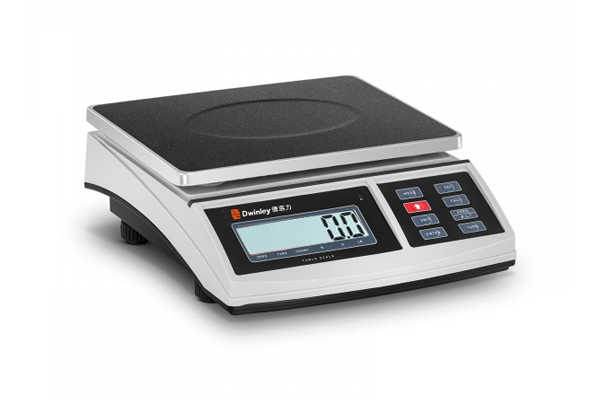Choosing the right Bench Weighing Scale Manufacturer is crucial for businesses seeking accurate, reliable, and durable weighing solutions. A carefully selected manufacturer ensures high-quality products, advanced technology, and dependable after-sales support, directly impacting operational efficiency and long-term investment value. This guide explores the key factors to consider, helping you make an informed decision and partner with a manufacturer that meets your specific needs.
Understanding Bench Weighing Scales
Definition and types of bench weighing scales
A bench weighing scale is a device that measures the weight of objects placed on its platform. These scales come in several types, each designed for specific needs. The main types include:
- Digital bench scales: Use electronic sensors to display weight readings on a screen.
- Mechanical bench scales: Rely on springs or levers to show weight, often with a dial or pointer.
- Industrial bench scales: Built for heavy-duty use in factories or warehouses.
- Laboratory bench scales: Offer high precision for scientific or research settings.
| Type | Key Feature | Typical Use |
|---|---|---|
| Digital | Electronic display | Retail, shipping |
| Mechanical | No power needed | Markets, fieldwork |
| Industrial | High capacity | Manufacturing, logistics |
| Laboratory | High precision | Science, education |
Common applications across industries
Bench weighing scales play a vital role in the daily operations of many industries, providing accuracy, efficiency, and consistency. In the food processing sector, these scales ensure precise portioning of ingredients, helping maintain quality and reduce waste. Laboratories rely on high-precision bench scales for experiments and research, where even small measurement errors can impact results.
In manufacturing and logistics, factories use bench scales to verify product weights before packaging and shipping, ensuring compliance with standards and customer expectations. Retail stores depend on reliable scales for accurate pricing, while shipping and courier companies use them to calculate shipping costs and optimize logistics.
Beyond these examples, bench scales are also widely used in pharmaceuticals, agriculture, and educational institutions, demonstrating their versatility. Choosing the right scale enhances operational efficiency, reduces errors, and supports consistent quality across diverse applications.
Why Manufacturer Choice Matters
Product Quality
The choice of manufacturer directly affects the quality and lifespan of a weighing scale. A reputable company uses high-grade materials and advanced production methods. This approach leads to products that deliver accurate results and withstand daily use.
Manufacturers with strict quality control catch defects before products reach customers. They test each unit for precision and reliability. As a result, users experience fewer breakdowns and less downtime.
After-Sales Support
After-sales support plays a key role in the overall value of a weighing scale. Reliable Bench Weighing Scale Manufacturers offer clear instructions, troubleshooting help, and access to spare parts. They provide maintenance services that keep equipment running smoothly.
A strong support team responds quickly to customer questions. They help users solve problems and avoid extended interruptions. This support ensures that businesses can rely on their equipment every day.
- Quick response times
- Access to genuine parts
- Regular maintenance options
Certifications
Manufacturers who follow international standards show commitment to safety and accuracy. Certifications like ISO or OIML indicate that a weighing scale meets strict guidelines. These standards cover performance, safety, and environmental impact.
Compliance helps businesses meet legal requirements in different regions. It also builds trust with customers and partners. Companies can avoid fines or recalls by choosing certified products.
Choosing a Manufacturer

Quality & Reliability
Choosing a manufacturer that prioritizes quality and reliability is essential for long-term performance. High-grade materials, precise engineering, and rigorous quality control ensure that bench weighing scales deliver accurate measurements consistently and withstand daily wear and tear. Reliable products reduce downtime, minimize errors, and lower maintenance costs. A trustworthy manufacturer also tests each unit before shipment, providing businesses with equipment they can depend on for critical operations.
Product Range
Manufacturers with a broad product range can meet many needs. Some businesses need a basic weighing scale, while others require advanced features. Customization options allow companies to choose the right size, capacity, and functions.
- Standard models fit common uses.
- Custom designs solve unique challenges.
- Flexible options support growth and change.
Innovation
Modern technology improves the performance of a weighing scale. Digital displays, smart sensors, and wireless connections make weighing easier and faster. Innovative features can also help with data tracking and quality control.
A manufacturer that invests in research often leads the market. They bring new solutions that help businesses work better.
| Feature | Benefit |
|---|---|
| Digital display | Easy to read results |
| Smart sensors | Higher accuracy |
| Wireless options | Fast data transfer |
After-Sales Service
Strong after-sales support keeps equipment running smoothly. Trusted Bench Weighing Scale Manufacturers offer training, maintenance, and quick repairs. They provide clear guides and answer questions fast.
Choosing the right manufacturer means looking at all these factors. A careful review helps businesses find the best weighing scale for their needs.
Red Flags to Avoid

Poor customer feedback
Customer reviews offer valuable insight into a manufacturer’s reputation. Consistent negative feedback often signals problems with product quality or service. Buyers should look for patterns in complaints, such as inaccurate readings or slow support.
Frequent issues mentioned in reviews may include:
- Faulty displays
- Inconsistent measurements
- Delayed response from customer service
Unclear specifications
Clear product specifications help buyers make informed decisions. Some manufacturers provide vague or incomplete details about their weighing scales. Missing information about capacity, accuracy, or materials can hide potential problems.
Watch for these warning signs:
- No mention of weight limits
- Lack of details on accuracy or calibration
- Unspecified warranty terms
A trustworthy manufacturer always lists technical data and performance standards.
Low-quality cheap products
Low prices may seem attractive, but they often come with hidden costs. Cheap bench weighing scales usually use inferior materials and poor construction. These products may break easily or give unreliable results.
| Warning Sign | Why It Matters |
|---|---|
| Very low price | May signal poor durability |
| Flimsy construction | Increases risk of failure |
| No certifications | Lacks safety assurance |
Buyers should avoid products that seem too cheap to be true. Reliable performance and safety should always come first.
Conclusion
Partnering with a reliable Bench Weighing Scale Manufacturer directly impacts business accuracy and operational efficiency. Emphasizing certified products, durable construction, and responsive support minimizes errors and maintenance issues. By selecting a manufacturer that combines innovation with proven expertise, companies can secure dependable equipment that meets both current and future needs, making informed choices a key factor in long-term success.
